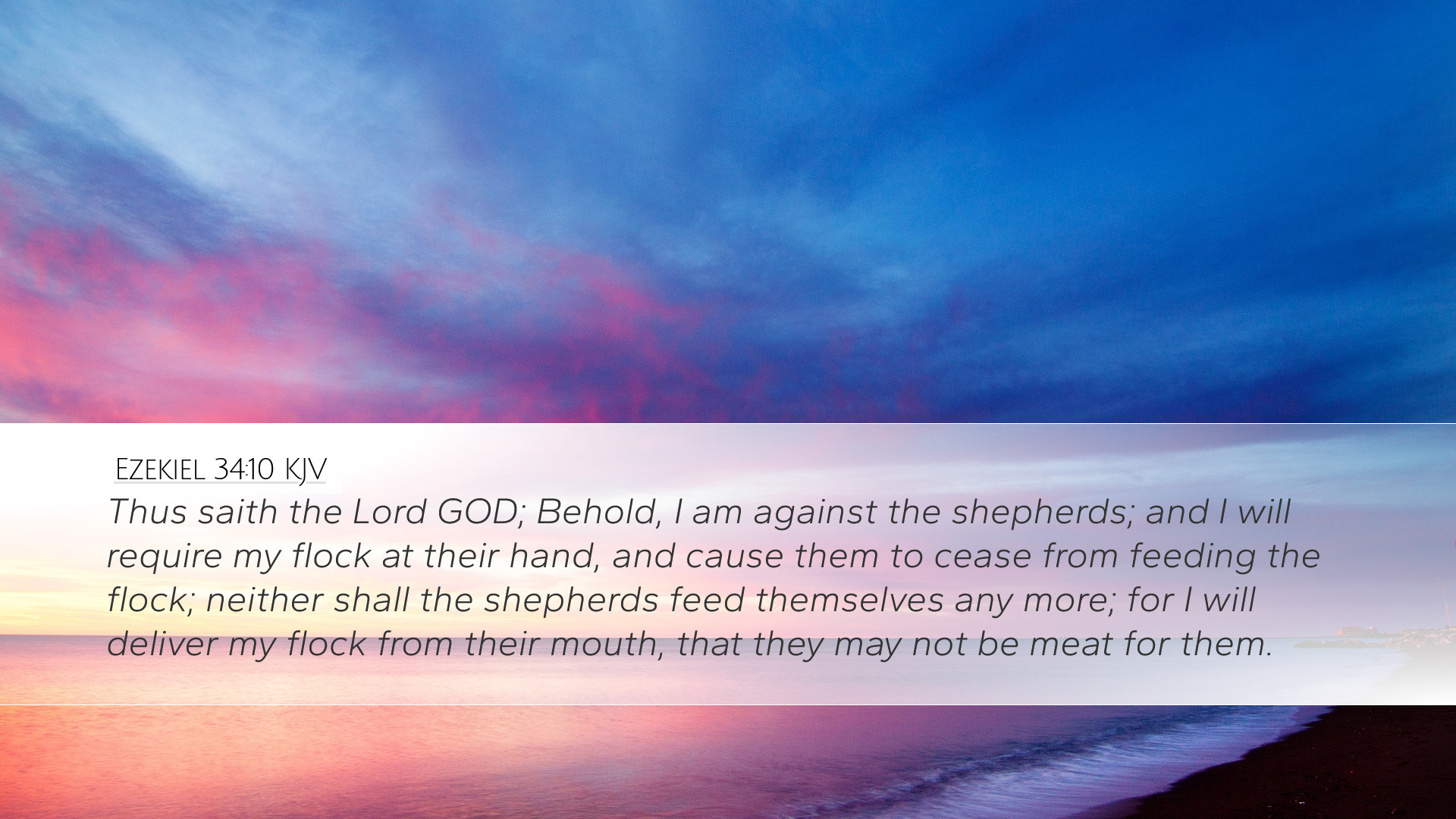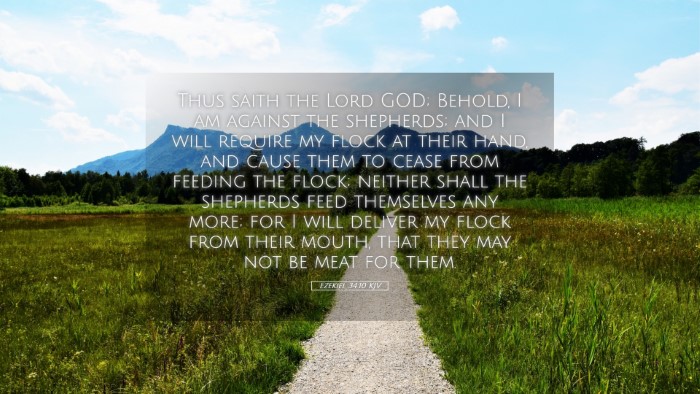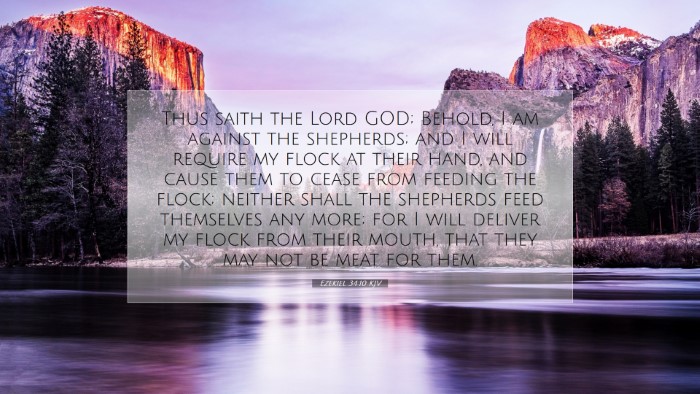Ezekiel 34:10 Commentary
Bible Verse: "Thus saith the Lord GOD; Behold, I am against the shepherds; and I will require my flock at their hand, and cause them to cease from feeding the flock; neither shall the shepherds feed themselves any more; for I will deliver my flock from their mouth, that they may not be meat for them."
Introduction
The prophecy in Ezekiel 34 marks a significant turning point in the narrative concerning God’s people, Israel. After a series of admonitions against the shepherds of Israel—those leaders who failed to care for their flocks—God states His intention to intervene directly. This verse encapsulates God’s displeasure with the shepherds and emphasizes His commitment to rescue His people from their neglect.
The Context of Ezekiel 34
To fully grasp the implications of Ezekiel 34:10, it is paramount to consider the surrounding chapters where God addresses the leaders of Israel. Ezekiel serves as a watchman, calling out the negligence of Israel's shepherds (leaders) who have been spiritually remiss. The immediate verses preceding this declaration set forth the condition of God’s people, likening them to sheep scattered and preyed upon due to poor leadership.
Insights from Public Domain Commentaries
Matthew Henry's Commentary
Divine Judgment Against Shepherds: Matthew Henry explains that God’s indictment against the shepherds of Israel goes beyond mere negligence; it signals a righteous judgment from God. The shepherds, who were supposed to care for the flock, have exploited and neglected them. Henry notes that the phrase "I am against the shepherds" indicates divine opposition to these leaders. The emphasis on the shepherds' failure elucidates the broader theological tenet that leaders are accountable to God for their stewardship.
Restoration of the Flock: Henry points out that God’s purpose in confronting these leaders is not only punitive but is also restorative. By declaring that He will require His flock from their hand, God emphasizes His role as the ultimate shepherd who will care for His people. This notion resonates with the overarching theme of God’s faithful providence and His willingness to intervene on behalf of those who are oppressed.
Albert Barnes' Notes on the Bible
Theological Implications: Albert Barnes further expounds on the shepherd and flock imagery, a prevalent theme in Scripture. He highlights the responsibilities of shepherds and correlates them to spiritual leaders today, emphasizing that they must lead with integrity and care. Barnes points out that neglect from leaders leads to dire consequences for the people they are meant to protect.
God’s Assurance: Barnes notes that God’s statement, "I will deliver my flock," serves as a significant assurance to the people of Israel. His commitment to deliverance reflects His covenantal relationship with Israel. This promise not only reduces fear among the people but also rekindles hope in God's purpose for restoring their nation and bringing them back into fellowship with Him.
Adam Clarke's Commentary
Accountability of Leaders: Adam Clarke underscores the serious nature of the leaders’ accountability for their actions and inactions. He provides a historical context concerning various leaders whom God judged for failing their duties. Clarke points out that this verse serves as a warning to all leaders about the severe consequences of neglecting their roles, urging them to be vigilant in their spiritual responsibilities.
The Role of God as Shepherd: Clarke expands on the metaphor of God as the ultimate shepherd, emphasizing how He directly intervenes to reform the leadership structure. He depicts God as one who nourishes, protects, and restores His people, contrasting the failures of human shepherds with the perfect care that only God can provide.
The Practical Application
For pastors and ministry leaders, Ezekiel 34:10 serves as a clarion call to examine their duty towards their congregations. The admonition to shepherds in this verse has lasting implications for contemporary Christian leadership.
- Accountability: Leaders must recognize that they are not only accountable to their congregations but ultimately answerable to God.
- Selflessness: Like the shepherds condemned in this scripture, leaders must avoid self-serving practices and instead focus on the welfare of their flock.
- Restoration: Emphasizing God’s desire for restoration can inspire leaders to focus on healing and nurturing their communities rather than merely ruling them.
Conclusion
Ezekiel 34:10 speaks to the heart of leadership and responsibility in the community of believers. The insights drawn from the commentaries reflect fundamental truths about God’s nature as a protector and provider. As we reflect on this verse, may it inspire all leaders, whether in the church or other spheres of life, to pursue a model of service that mirrors Christ's selfless love and pastoral care.


